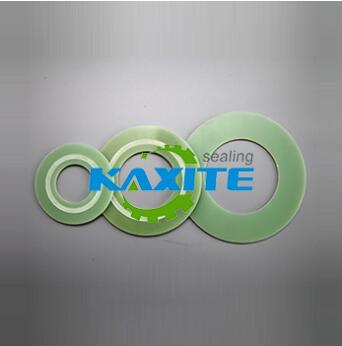The Power of Protection: Exploring Epoxy Resin Fiberglass Gaskets
2023-10-17
Introduction
In the world of industrial equipment and machinery, gaskets play a pivotal role in sealing joints, preventing leaks, and safeguarding against environmental factors. Among the many types of gaskets, epoxy resin fiberglass gaskets have gained prominence for their exceptional durability, chemical resistance, and reliability. In this blog, we'll delve into the significance, features, and applications of epoxy resin fiberglass gaskets in the realm of industrial sealing and protection.
Understanding Epoxy Resin Fiberglass Gaskets
Epoxy resin fiberglass gaskets are specialized seals composed of layers of fiberglass fabric impregnated with epoxy resin. This combination of materials results in a gasket that possesses remarkable mechanical strength, chemical resistance, and dimensional stability. Epoxy resin is used as a binding agent, while the fiberglass fabric reinforces the gasket, making it resistant to wear, corrosion, and extreme temperatures.
Key Features and Benefits
1. Chemical Resistance: Epoxy resin fiberglass gaskets are highly resistant to a wide range of chemicals, acids, and solvents, making them suitable for applications where exposure to corrosive substances is a concern.
2. High-Temperature Stability: These gaskets can withstand elevated temperatures, making them ideal for sealing joints in high-temperature environments, such as exhaust systems or industrial ovens.
3. Mechanical Strength: The fiberglass reinforcement provides excellent mechanical strength, allowing the gaskets to maintain their shape and sealing performance under compression.
4. Dimensional Stability: Epoxy resin fiberglass gaskets maintain their dimensions over time, ensuring a consistent and reliable seal even after prolonged use.
5. Durability: They are known for their durability and long service life, reducing the need for frequent gasket replacements and associated maintenance costs.
6. Customizable: Epoxy resin fiberglass gaskets can be customized to meet specific design and size requirements, ensuring a perfect fit for various applications.
7. Electrical Insulation: The electrical insulation properties of epoxy resin make these gaskets suitable for applications where electrical conductivity must be avoided.
Applications
Epoxy resin fiberglass gaskets find applications across a wide range of industries and environments:
1. Chemical Processing: They are used in chemical plants and refineries to seal flange connections and valves, where exposure to corrosive chemicals is a concern.
2. Automotive: Epoxy resin fiberglass gaskets are employed in automotive exhaust systems, where they provide a reliable seal against high temperatures and chemical emissions.
3. Electronics: These gaskets are used in electronic enclosures to seal against moisture, dust, and electromagnetic interference (EMI), protecting sensitive components.
4. Aerospace: In aerospace applications, epoxy resin fiberglass gaskets are utilized in aircraft engines, where they must withstand extreme temperatures and vibrations.
5. Food and Beverage: They find use in the food and beverage industry to seal equipment in processing and packaging, ensuring hygiene and preventing contamination.
6. Energy Generation: Epoxy resin fiberglass gaskets are used in power generation facilities, including nuclear, fossil fuel, and renewable energy plants, where they seal critical equipment.
Conclusion
Epoxy resin fiberglass gaskets represent a robust and dependable solution for sealing and protection in various industrial settings. Their resistance to chemicals, high temperatures, and mechanical stress makes them essential components in ensuring the reliability and safety of equipment and processes. As industries continue to demand seals that can withstand challenging environments while maintaining performance, epoxy resin fiberglass gaskets will remain indispensable in the world of industrial sealing and protection.



